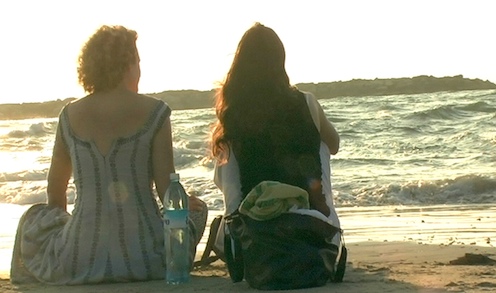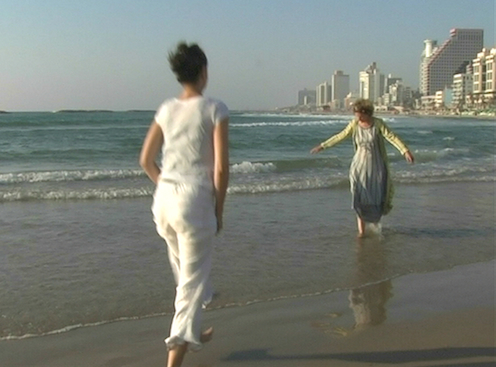Tel Aviv By Girls
Full Description
Tiffany and Eliette are two women on the verge of change. Lifelong friends in Paris, they meet in Tel Aviv for one week of soul-searching and spiritual awakening. Eliette has just walked out on her husband and young daughter. Tiffany is a recent divorcee hoping to reconnect with an old fling in Israel. The two thirty-somethings spend the week squatting in a dusty, abandoned apartment that becomes their makeshift hideout as they party, check out guys and avoid any responsibility. They indulge in the local nightclub scene and lounge on the beach with French expats who philosophize about Israel as a graceful and conflicted country. The two women on the lam go to the Dead Sea to float and chat—how very French! They share stories about happiness, desire, intimacy and love. As Tiffany’s romantic pursuits begin to unravel, Eliette must confront an ultimatum from her husband: come home or face divorce. Will she continue to explore her newfound freedom? Or will she return to her domesticated life and resume her responsibility as a wife and mother?
In cinema-verité style, the camera wanders from character to character as they journey through the streets of Tel Aviv attempting to find themselves. The few moments when Tiffany turns and looks straight into the camera to divulge her impressions of Israel are truly priceless. Tel Aviv By Girls is an unpretentious and mesmerizing docu-fiction hybrid that deftly conveys the spontaneity of life. At times whimsical, at times profound, this compelling film explores the complexity of modern womanhood and the fragility of human relationships.
Filmmaker Bio(s)
from 2008 festival Director, France
Eliette Abecassis was born in 1969 in Strasbourg. Today, she lives in Paris.
She has a degree from the Ecole Normale Supérieure and is a graduate in philosophy.
In 1996, her first novel, Qumran, is a theological thriller about the Dead Sea Scrolls. She made deep inquiries in United-States, Israel and Great-Britain and signed a best-seller which was sold in 18 countries.
In 1997, she published L’or et la cendre, a metaphysical thriller.
In 1998, she wrote an essay on the theme of evil, Petite Métaphysique du meurtre.
La Répudiée, published by Editions Albin Michel in september 2000, received the Prix des Ecrivains Croyants 2001 and was adapted for the cinema (Kadosh by Amos Gitaï, a movie selected for the Cannes Festival).
In 2001, in the same vein as Qumran, Le Trésor du Temple is a mystery about the Templars. The same year, she produced a short film named La nuit de noces written with Gérard Brach.
In 2002, she published Mon Père, a disturbing and brilliant short novel which was on the short-list for the Prix Goncourt, Fémina and Medicis.
In 2003, Clandestin told the story of an impossible love, with a minimalist and intense style.
In 2004, the last part of Qumran, La Dernière Tribu makes disturbing links between shintoism and judaism.
In 2005, in her novel Un heureux événement, Eliette Abécassis tackles the theme of motherhood, with subtlety and originality. That is a subversive, right and funny book that already sold 100 000 copies in France.
The same year, she is the co-director and the co-writer of the documentary-fiction Tel Aviv la vie, with Tiffany Tavernier, a feminine and sentimental road-movie in Israel, both light and uptight.
In 2007, with Caroline Bongrand, she publishes an essay about women from today: Le Corset Invisible. The same year, she publishes with her father Armand Abécassis, Le Livre des Passeurs, a complete anthology about the Jewish literature.,
Director(s)
Country(ies)
Language(s)
w/English Subtitle
Release Year
Festival Year(s)
Running Time
98
Cast



